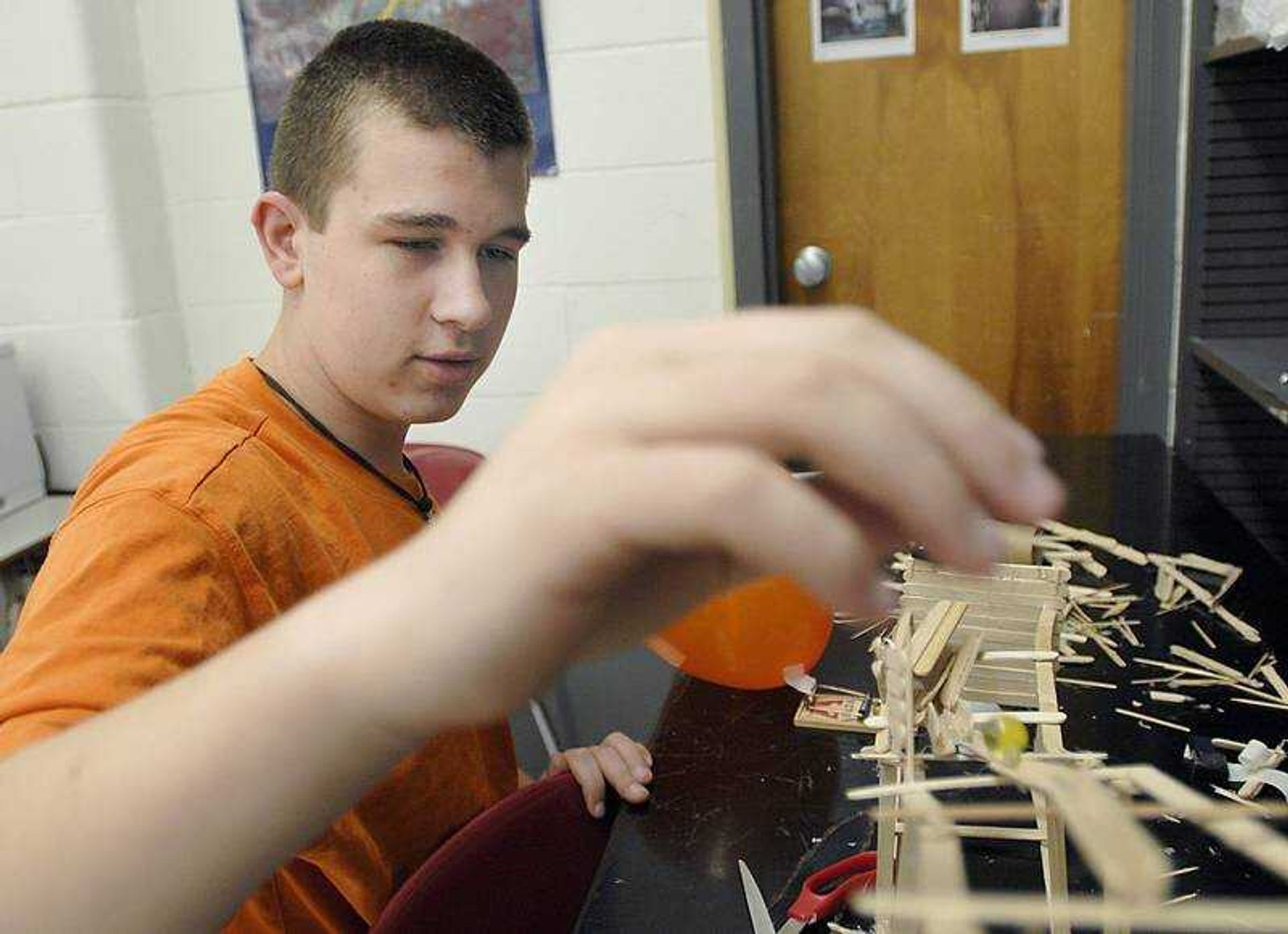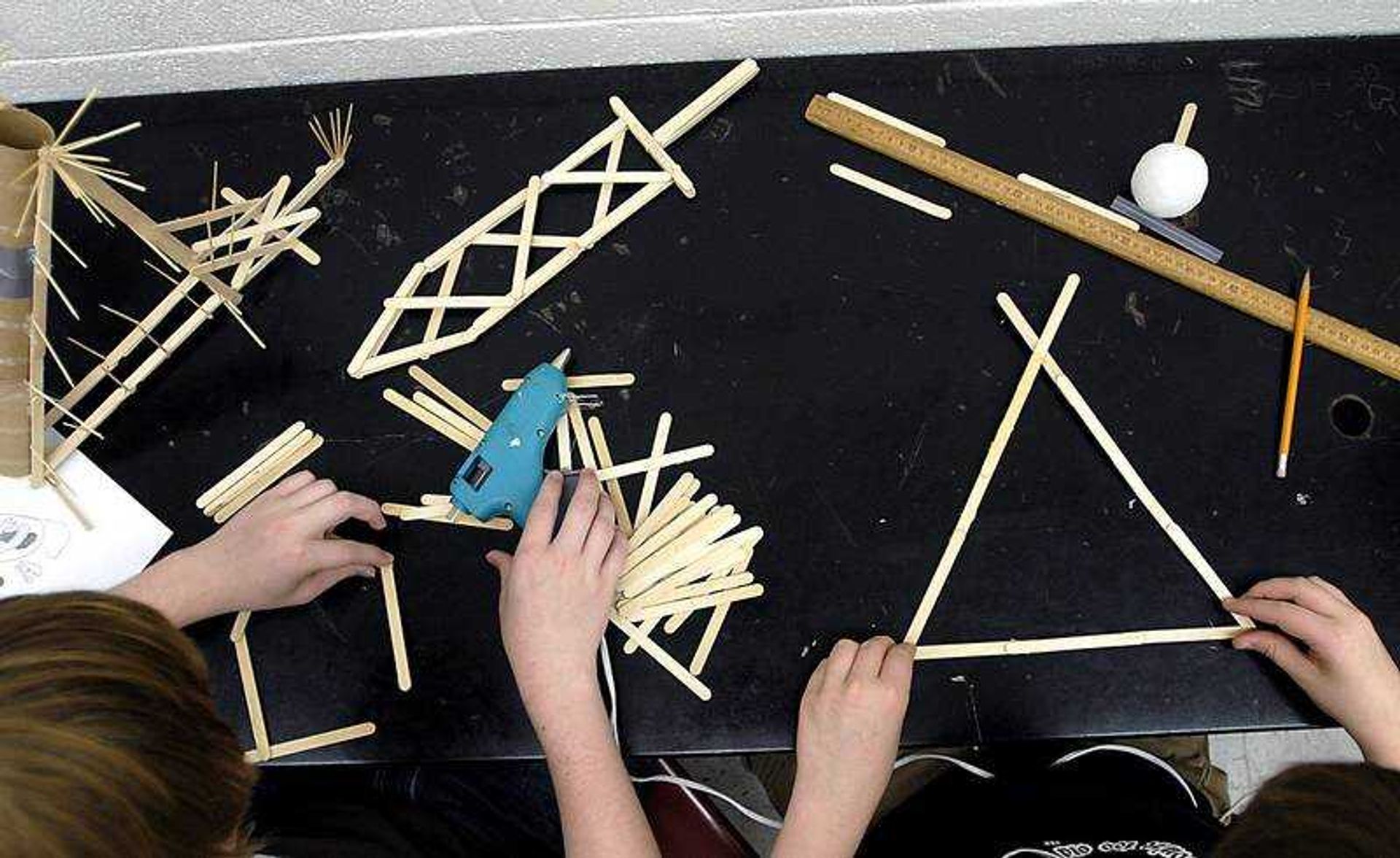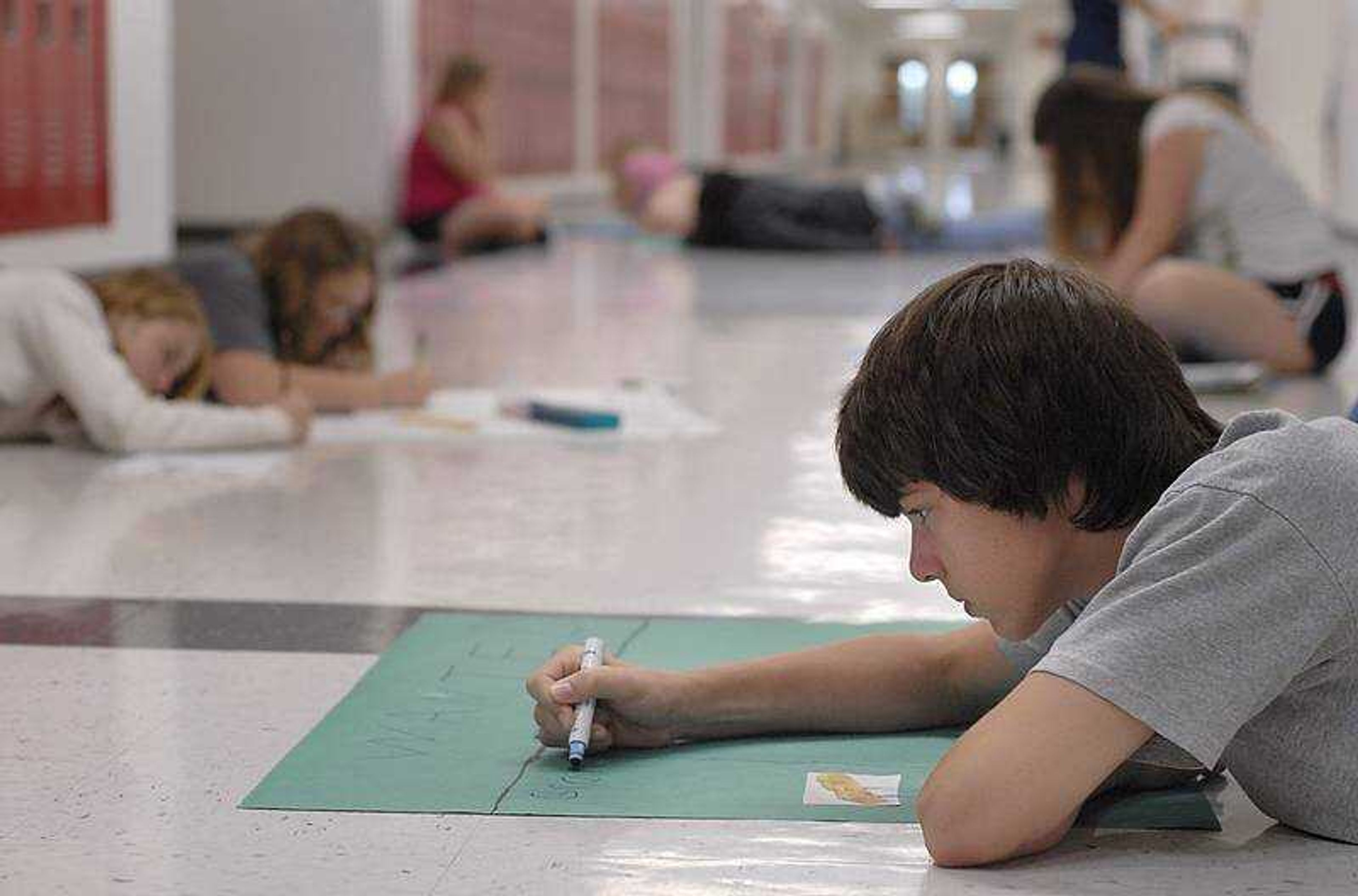School's in for summer
Summer school is decidedly different from school at Jackson Junior High this year. Gone are days of mandatory remedial classes, the structure of summer school when director Bill Myers was in school. Classes like landscaping, online scrapbooking and Windows Movie Maker have taken its place. ...
Summer school is decidedly different from school at Jackson Junior High this year.
Gone are days of mandatory remedial classes, the structure of summer school when director Bill Myers was in school. Classes like landscaping, online scrapbooking and Windows Movie Maker have taken its place. The atmosphere is more relaxed, students say. And in a period where many districts are having to scale back programs due to economic hard times, the district is doing the opposite: scheduling field trips once a week.
On the district's tab, students traveled to Marion, Ill., to see the Miners play baseball Friday. They're visiting colleges this week. Later this month they'll get a free trip to Six Flags.
"Regular school's not this fun," student Ben Bohnert said, while constructing a "balloon popper" machine for a science elective.
The district's budget for summer school is $212,161, which covers salaries, supplies and materials. Transportation and utility costs are not included as line items.
The budget increased about 13 percent over last year, although the number of students served has risen by only 13, for a total of 1,233 students.
"Summer school does not generate as much state funding as it once did, however, the district is continuing to provide summer school opportunities for students," assistant superintendent Dr. Jim Welker wrote in an e-mail.

While enrollment districtwide remained about the same, it more than doubled at the junior high, from 80 to 176 students. The program is entering its second year there. Myers said the aim is to "keep kids out of trouble over the summer and give them something to do."
Special education teachers were hired to work beside general education teachers in health and keyboarding classes, a luxury not available during the year. Attracting more special education students was one of the district's main goals, Myers said.
Students can receive credit for keyboarding or health, requirements for graduation. Incoming freshman Rachel Hodo is taking classes now so she can take band and athletic electives during the school year.
"It's way more laid back here. We do things we normally wouldn't do during the year, like we got to ride skateboards down the hall," she said, referring to a physics experiment. Last week, science teacher David Brummel pushed a bowling ball down a ramp while students tried to outpace it on a skateboard, leading to a discussion about speed and acceleration.

On Thursday, students in Brummel's class worked in pairs to construct a skyscraper out of Popsicle sticks that could withstand gusts of wind from a fan. Later, they'll have to build and test a miniature roller coaster.
"It's organized freedom. I want to allow them to think, to problem solve. I say here are the materials, here is the goal, you find the pathway to accomplish it. With a smaller class you can accomplish more," Brummel said.
Summer school runs through June 27, or June 26 for students entering grades one to seven.
Like their junior high counterparts, younger students attend summer school mostly for enrichment. Their morning is spent learning or reviewing core subjects, while the afternoon is for fun -- arts and crafts, board games or playing outside. About half of the 287 students attend targeted reading classes in the morning.
They also go on field trips. Two groups will watch drama productions at the middle school and high school, and another group will tour the River Campus at Southeast Missouri State University.
"We've seen an increase in parochial or home-school enrollment for summer school. Our biggest years are those entering kindergarten or sixth grade, the first year students do class switching. Those transition years are always biggies," said Shannon Heisserer, the kindergarten through seventh-grade summer school director.
In Cape Girardeau, the approach to summer school differs. Classes are mostly remedial, and for some students, promotion to the next grade hinges on their summer performance.
Math and reading are studied exclusively at the middle school, where students rotate among rooms every 30 minutes. Nearly 110 students signed up to attend, but only 80 actually showed up, so class sizes are small.
"Summer school has historically been a recovery summer school," said Central High School principal Dr. Mike Cowan. Core classes such as English, math and government are offered.
At the elementary level, students are allowed time for recess daily and computers twice a week. Forty hours of instruction is in communication arts, and at least 20 is in math.
"It's a wonderful experience for all students. We want to make sure they're prepared to be successful at the grade they're entering in the fall," said Dr. Barbara Kohlfeld, principal of Blanchard Elementary.
lbavolek@semissourian.com
335-6611, extension 123
Does this affect you?
Have a comment?
Log on to semissourian.com/today
Connect with the Southeast Missourian Newsroom:
For corrections to this story or other insights for the editor, click here. To submit a letter to the editor, click here. To learn about the Southeast Missourian’s AI Policy, click here.










